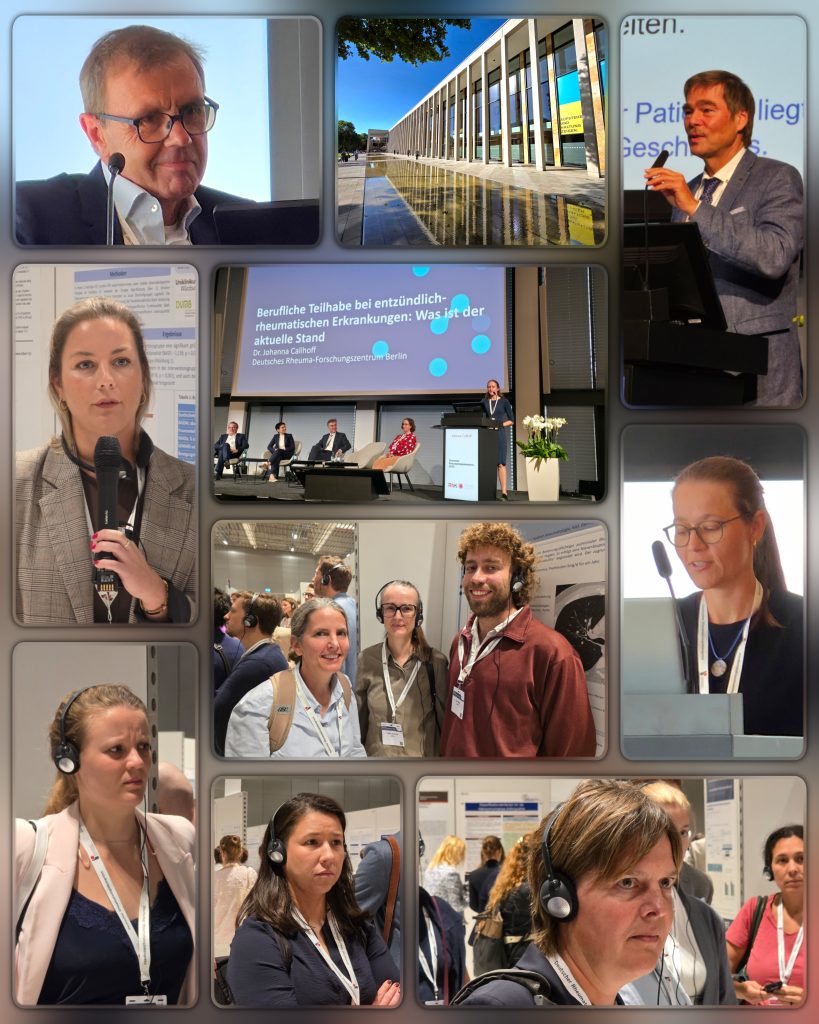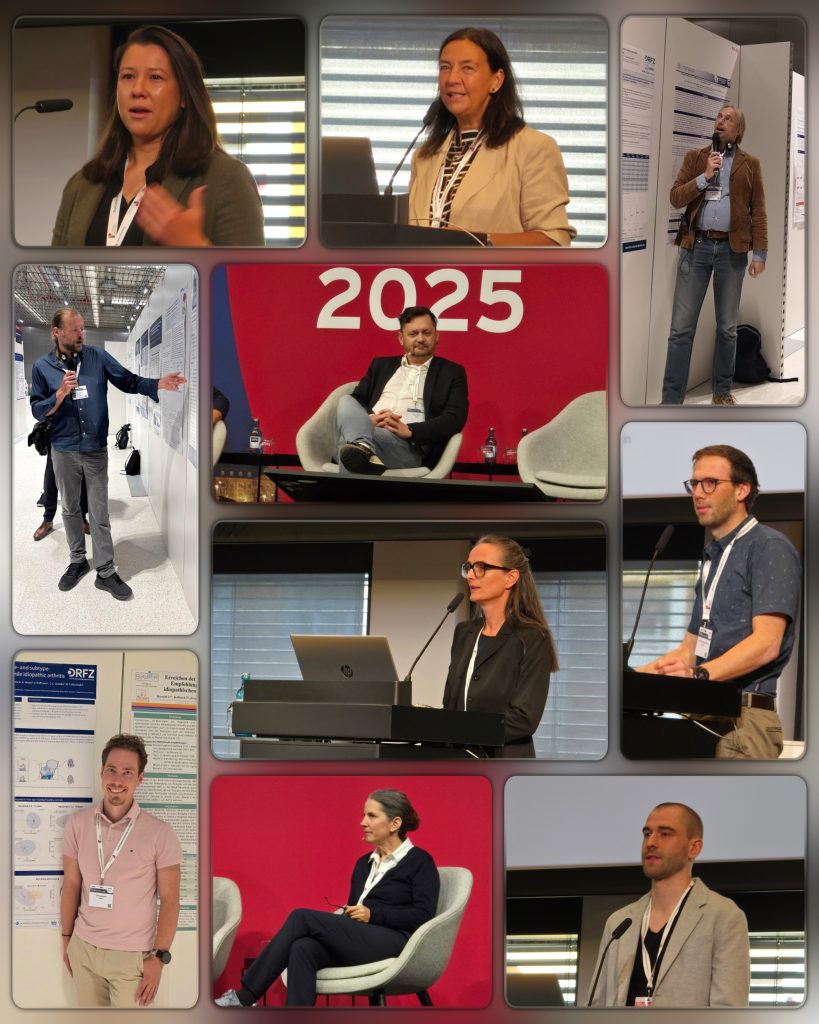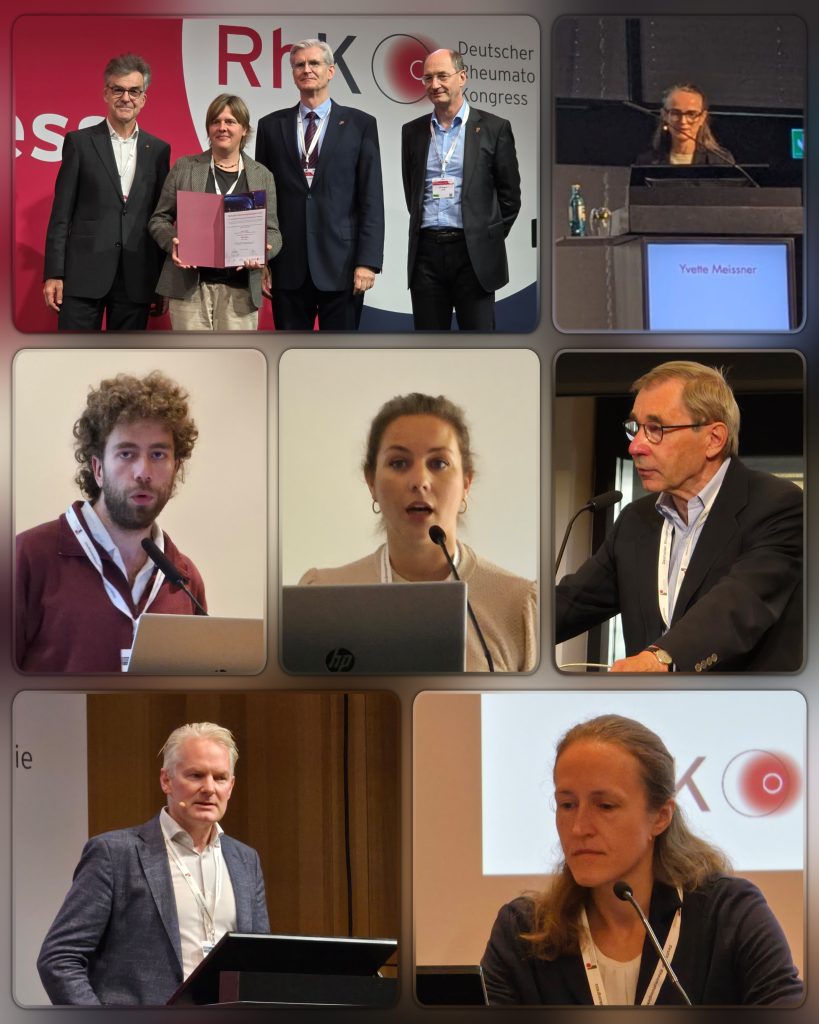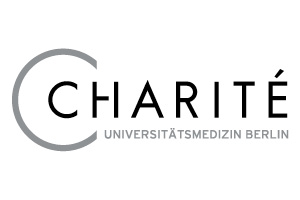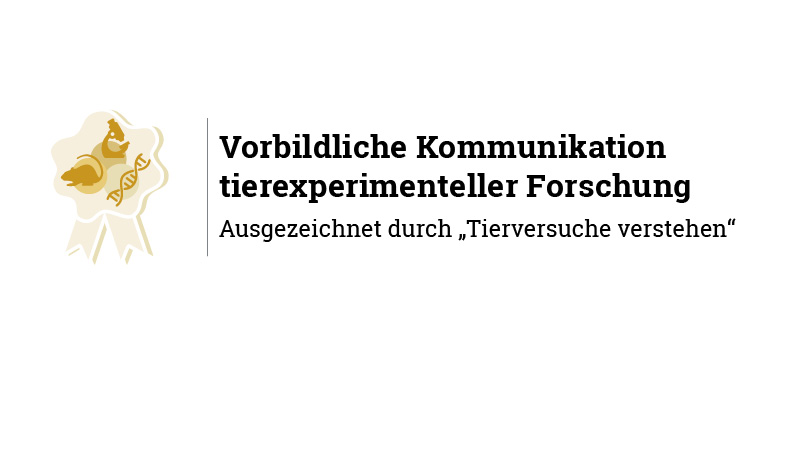Julia Rautenstrauch, Jacob Ritter, and Lisa Lindner honored during the 2025 Rheumatology Congress
The 53rd Congress of the German Society for Rheumatology and Clinical Immunology (DGRh) took place this year in Wiesbaden from September 17 to September 20, 2025. The DRFZ was represented with a booth in the Rheumahaus and with numerous presentations.
Dr. Julia Rautenstrauch, Deputy Chair of the DRFZ Board of Trustees, was awarded honorary membership of the DGRh on September 17, 2025, during the opening of the RhK 2025. The DGRh honored her decades of commitment to rheumatology. The laudatory speech was given by Prof. Dr. Angela Zink, former head of the Epidemiology and Health Services Research program area at the DRFZ.
Dr. Jacob Ritter from the research group of Prof. Dr. Thomas Dörner, Charité – Universitätsmedizin Berlin and DRFZ, was awarded the “Joachim Kalden Promotionpreis” in the field of rheumatology for his outstanding doctoral thesis on biomarkers in Sjögren Syndrom.
On the last day of the congress, Lisa Lindner from Dr. Anne Regierer’s research group was awarded the scientific prize in the category of epidemiology and health services research for her poster entitled “Differences between women and men with PsA: An analysis from the RABBIT-SpA registry.” We would like to congratulate the award winners on these special rewards.
DGRH Congress Day on September 18, 2025: A variety of scientific insights from our colleagues

Dr. Katinka Albrecht addressed the continuing shortage of specialists in rheumatology in her presentation “Memorandum Reality,”. On a positive note, the field is becoming increasingly female. Although around 60 new rheumatologists are certified each year, many experienced colleagues are retiring at the same time, meaning that minimum requirements remain inadequately met.
Dr. Eva Schrezenmeier from Prof. Dr. Thomas Dörner’s research group presented her research on tolerance induction after kidney transplantation.
Prof. Dr. Frank Buttgereit addressed the question of whether glucocorticosteroids should only be taken early in the morning. His clear answer: “In principle, yes!” – but with certain exceptions.
Dr. Johanna Callhoff shed light on the professional participation of people with inflammatory rheumatic diseases. Her data shows that for most of the diseases examined, employment has been increasing for several years, but remains well below the level of general employment.
During the poster walk, numerous colleagues also presented their current research work and provided exciting insights into ongoing projects.
DGRh Congress Day, September 19, 2025: The role of sex, gender and timing of medication in disease activity and therapy

…and much more…
Dr. Katinka Albrecht emphasized that sex influences all outcomes of rheumatic diseases and must therefore be taken into account in both therapy and studies.
Lisa Lindner reported from the RABBIT SpA registry that women with spondyloarthritis experience more severe pain and higher disease activity. They discontinue therapy earlier than men.
Dr. Yvette Meissner explained that men with rheumatoid arthritis (RA) have a higher risk of heart failure (HF) than female patients.
Dr. Martin Schäfer explained that the statistical data show no evidence of therapy-related differences in the risk of new or recurrent malignancies in patients with RA and a history of malignant disease.
Dr. David Simon reported on the experiences and successes with CAR-T cell therapy at Charité.
Dr. Carl Goetzke spoke about the challenges in the diagnosis and treatment of autoinflammatory diseases in young patients.
During the poster walk, researchers from the DRFZ presented their current work and provided an overview of the diversity of ongoing projects.
Dr. Timo Gaber explained why timing also plays a decisive role in rheumatology. In RA, the immunological circadian rhythm is disrupted and the symptoms of the disease follow the rhythm of the “molecular clock.” Therapies that are tailored to this internal clock are more effective.
Last but not least, Prof. Dr. Anja Strangfeld provided insights into the reality of caring for older patients.
DGRh Congress Day, September 20, 2025: An inspiring conclusion to the congress

Prof. Dr. Eicke Latz, Scientific Director of the DRFZ, was optimistic: “New, more effective therapies open up promising perspectives. The inflammasomes NLRP1 and NLRP3 represent new target structures for modulating inflammatory processes.” Precision diagnostics, personalized treatment approaches, and preventive strategies could fundamentally change medicine.
Dr. Carlo Veltri from Dr. Johanna Callhoff’s group had good news: since 2010, the employment rate among patients with rheumatic diseases has increased. Nevertheless, their employment rate remains below that of the general population.
Prof. Dr. Thomas Krieg, President of the DRFZ Board of Trustees, gave an overview of the role of fibroblasts in the skin and in fibrotic diseases.
According to analyses of the RABBIT-SpA registry by Dr. Stephanie Lembke, Dr. Anne Regierer’s group, patients with difficult-to-treat axial spondyloarthritis suffer from a higher disease burden and are disproportionately female and obese.
We would like to express our sincere thanks for four days full of exciting presentations, valuable insights, and enriching discussions.

